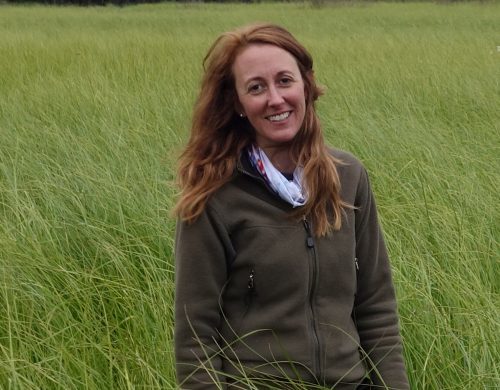
Understanding impacts of climate warming on northern permafrost and developing crops resilient to climate change are the goals of two University of Guelph research projects that will receive a total of almost $900,000 in federal funding.
Plant agriculture professor Manish Raizada and Prof. Merritt Turetsky, Department of Integrative Biology, will receive three-year Strategic Partnership Grants (SPG) from the Natural Sciences and Engineering Research Council.
In total, 75 collaborative research projects across Canada will receive more than $44 million in Strategic Partnership Grants, it was announced today by Kirsty Duncan, minister of science and sport.
The funding will connect top researchers with industry, government and other partners in projects intended to address challenges in such areas as environment and agriculture, said Duncan. These grants also provide training opportunities for students.
“When researchers, businesses and governments work together, they can turn their discoveries into the innovations that will improve the lives of all Canadians,” she said. “That is why our government is investing in the partnerships that will bring our best and brightest together. When we invest in science and research, we invest in us all.”
Lloyd Longfield, MP for Guelph, said, “I have seen first-hand the effects of climate change on permafrost in the Artic and know extreme weather patterns are directly impacting farms across Canada. It is so important to invest in research to better connect effects with solutions and policy development.”
Malcolm Campbell, U of G vice-president (research), said, “Not only will these projects help us understand the impacts of climate change, but they will also bring University of Guelph expertise to bear on developing hands-on adaptations and solutions to the problem.
“From improved crops to better stewardship of Canada’s changing North, these projects are great examples of how our talented U of G researchers are working today on improving life for tomorrow.”

Raizada is developing climate change-resilient corn and wheat to combat Fusarium, a major crop plant pathogen. He will receive $304,000 over three years under the SPG program.
Under warmer conditions, including in the Great Lakes region, he said, infestations of the Fusarium fungus are predicted to worsen. Working with a Waterloo-based start-up company, Raizada will study probiotic microbes that protect corn and wheat from fungal infection.
He said the grant will allow him to screen for beneficial microbes. “We hope, through traditional breeding to select for a healthy microbiome, or develop new probiotics that could be used as sprays or coated onto seeds, similar to how humans consume probiotics to protect the gut against disease,” he said.
Turetsky will receive $577,020 to study permafrost vulnerability to thawing under climate change in the Northwest Territories.
Calling hidden permafrost “the backbone that holds Northern ecosystems together,” she said, “We know that permafrost is central to the fate of Northern communities, but we don’t have the scientific tools we need to predict permafrost change.”
The journal Nature recently published a commentary from Turetsky on rapid permafrost thaw.
Working with Prof. Aaron Berg, Department of Geography, Environment and Geomatics, and with government scientists, Turetsky plans to develop better tools to assess permafrost changes and likely impacts on infrastructure and communities in the North.